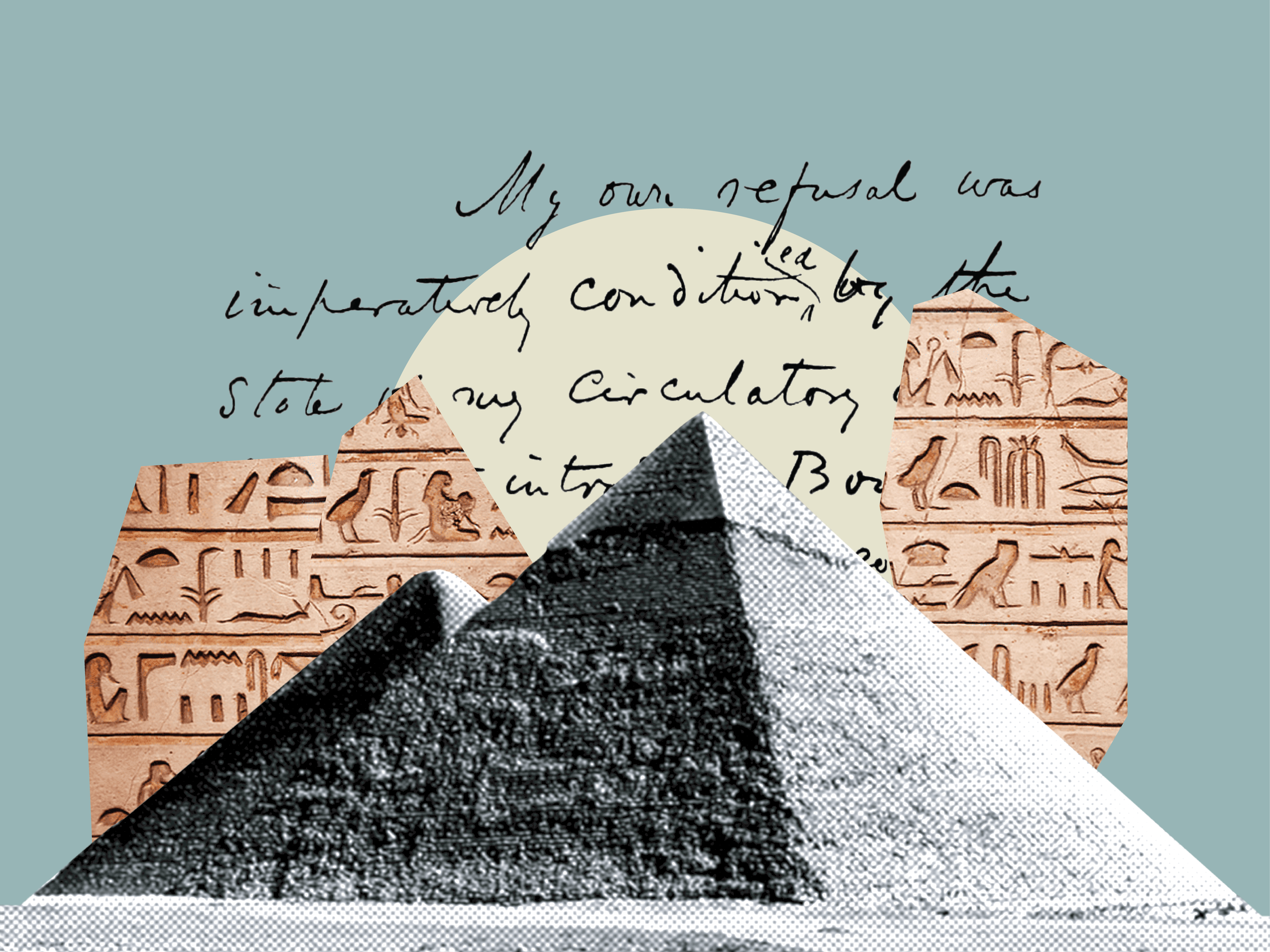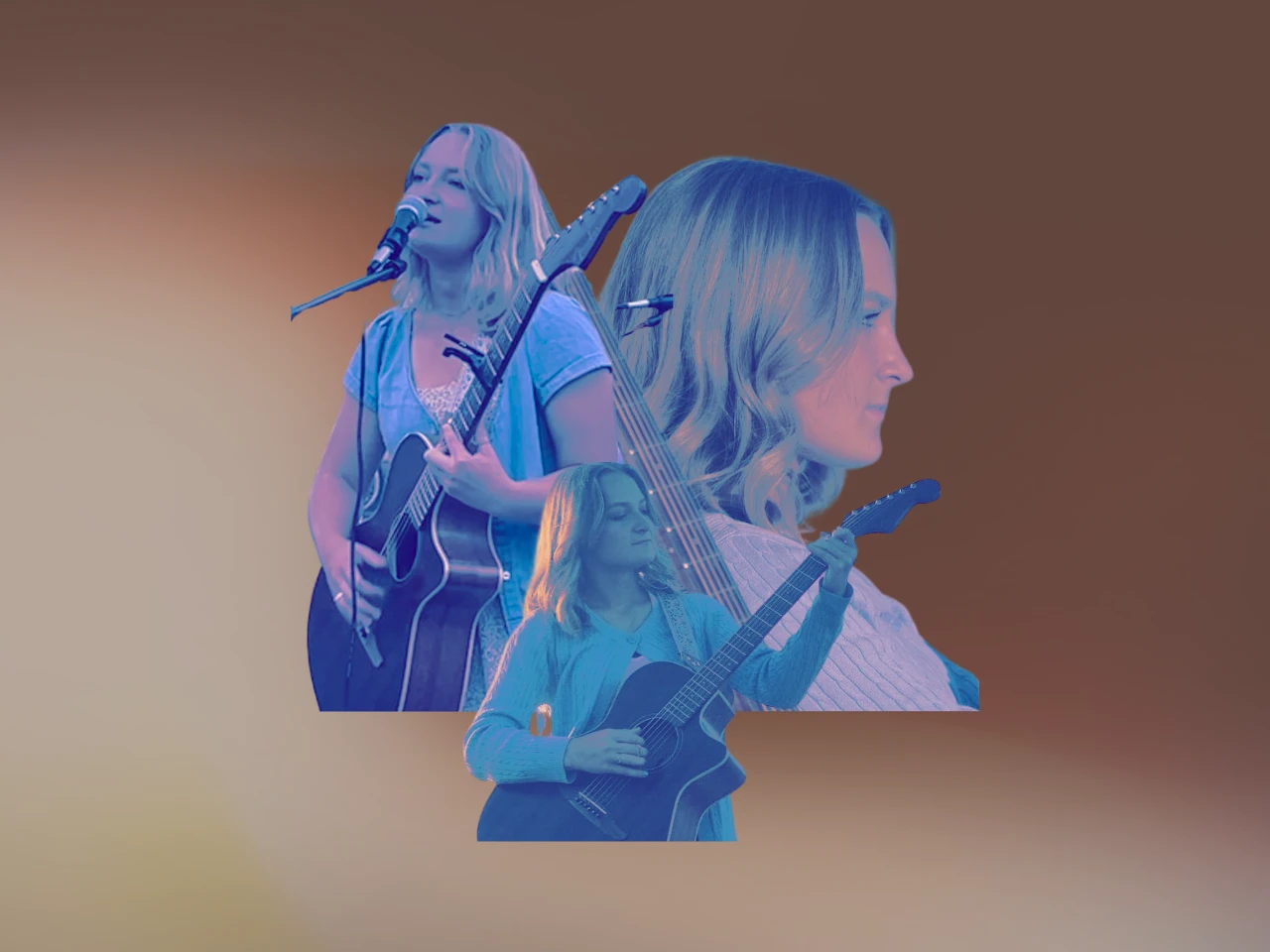When I was ten, I wanted to be an Egyptologist. No one brought me to this conclusion or encouraged its development, it happened on its own after I’d stumbled across a documentary on the Discovery channel. My parents didn’t understand why I’d developed such a fascination with the ancient Egyptian world, and, to be fair, they still don’t.
The space ancient Egypt held in my head could not be accessed, but it was always there—tangible images interposed with the space I occupied. Poetry fits into this realm of inhabitable spaces without providing solid evidence that such a space exists. It uses language to build pyramids, to pry bricks out of letters and redefine them, shifting words to reconfigure a unique shape unconstrained by traditional rhetorical practicality. Meaning, within poetry, does not have to be standardized; it can transform and take on whatever shape that fits best, even if the motivation for that shape is unclear. Poetry creates a music of no particular design—one that can be full of anything, from every subject, and perceived with emotions and reactions that don’t rely on some unknowable underlying message.
When language allows beauty to swallow meaning and regurgitate an unconventional statue in its place, the resulting poem transforms into a panoramic picture determined to show the reader the entire scene. The problem is that the picture is obscured—a faded hieroglyph inscribed on a tomb wall. Language allows us to unravel what might be beneath the surface, whether it be literal or speculative. Poetry is intended to be a labyrinth, a colossal puzzle that is unsolvable only because its pieces are not designed to be conventional. When the ancient Egyptians built the pyramids, they wanted to be remembered and live out their afterlife in a way that wasn’t commonplace and that left something behind. No one person’s afterlife was destined to be the same, in fact, the pyramids remaining intact today show that in their various forms of construction (for example, the Pyramid of Djoser, otherwise known as the step pyramid). The poem is founded on the personal, and every personal experience will leave an imprint, no matter how grand or how small. Sylvia Plath couldn’t write with such moving images if she hadn’t founded her poems on confession; where would that “Marble-heavy, a bag full of God” be if she hadn’t written from within herself?
* * *
My father raised me while battling PTSD from Operation Desert Storm and Iraqi Freedom. He taught me what it means to be a team, but he also taught me how to remove the instinct to act as an individual when taken away from the battlefield. Because of what I learned growing up, I don’t like being personal and I don’t think I will ever be.
When I began writing poetry, I excluded myself from the words—erased anything that could be an opening for others to peer into. If there was a single speck of myself, I’d cover it because it felt like giving too much away. Something about the way the ancient Egyptians placed themselves in the story, placed it where everyone could see and remember it even after time ravaged their work, compelled me to keep seeking poetry out any way I could.
Hieroglyphs are vulnerable to erosion, just like people, but they still transcend time and tell us about people who lived and how they lived all those years ago. I wasn’t aware of my fixation on facts until a college professor told me how much impact my poems would have if I included even just a small detail about myself and my experience. Through that professor, I was brought to poets, like Marianne Moore, who changed both my style and my perspective. Moore’s poems taught me that drawing images from my experiences and wandering through facts of a million different fields can merge into something that resonates with myself and others without sacrificing the enigmatic intellect I shroud myself in.
Poetry must be a god on its own: containing multiple entities and evading reason at every turn. It must have a pliant form and wander through language as the Neanderthals roamed the earth 40,000 years ago. In ruins around the world, there are texts and art from civilizations long since vanished. Something is always left behind, whether it be massive structures like pyramids, or bricks inscribed with a dead language. As humans, we always leave a mark, and poetry is another way to leave behind an experience.
The Egyptians built pyramids as tombs to prepare the dead for the next life, and inscribed hieroglyphs into their monuments that still stand today. Time has not managed to wipe their history off the map, though it has taken away pieces and left openings for a variety of interpretations that will change as we discover more of what was left behind. Poetry, like hieroglyphs, stands to outlast the stamp of time and cross through generations of analyses. Poetry is another way we leave ourselves behind and create an unrivaled statue of beauty to leave behind the indescribable nature of experience for everyone to see.\
Flora Soper is a twenty-four year old poet and fiction writer, currently living in Florida. She is drawn to anything and everything, but holds a deep-rooted connection to history and mythology. Throughout her works, you’ll find various references ranging from Egyptian cultural and religious practices to the end of the Tudor era. She is a co-founder and co-editor of the online literary magazine The Fantastic Other. She has two poems published on Selcouth Station's blog, and two poems in the University of Tampa’s Neon, and aspires to move anywhere outside of Florida one day.
Original Art by Sako Antonyan, website here



